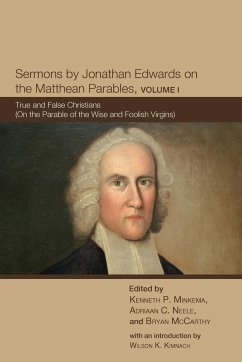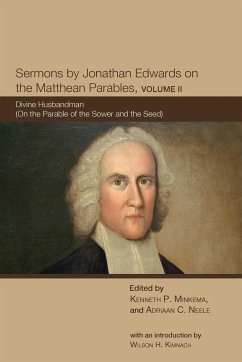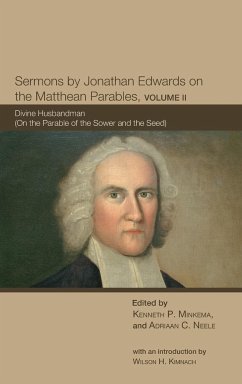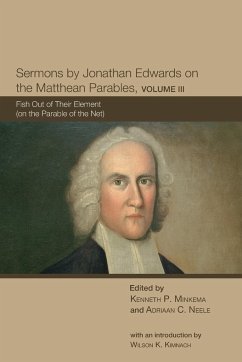
Jonathan Edwards and the Covenant of Grace

PAYBACK Punkte
16 °P sammeln!
Twentieth century discussions of Edwards' covenant theology frequently named a tension in the purity of Edwards' Calvinism. Was his insistent teaching on the covenant of grace suggestive of incipient Arminianism, or was Perry Miller correct in asserting that Edwards rejected the covenant, with its abridging of God's freedom, by his categorical insistence on God's absolute sovereignty in salvation? Bogue explores the breadth of Edwards' writing, including many unpublished manuscripts, and interacts with a broad spectrum of secondary works to demonstrate conclusively that Calvinism and the coven...
Twentieth century discussions of Edwards' covenant theology frequently named a tension in the purity of Edwards' Calvinism. Was his insistent teaching on the covenant of grace suggestive of incipient Arminianism, or was Perry Miller correct in asserting that Edwards rejected the covenant, with its abridging of God's freedom, by his categorical insistence on God's absolute sovereignty in salvation? Bogue explores the breadth of Edwards' writing, including many unpublished manuscripts, and interacts with a broad spectrum of secondary works to demonstrate conclusively that Calvinism and the covenant of grace are entirely consistent and do not exclude one another. The covenant of grace is not a device of man acting autonomously; it is a provision of the eternal, sovereign, electing God. As set forth by Edwards, it is simply the way the sovereign God has committed Himself to carry out what He has decreed from all eternity pertaining to the redemption of sinners.













